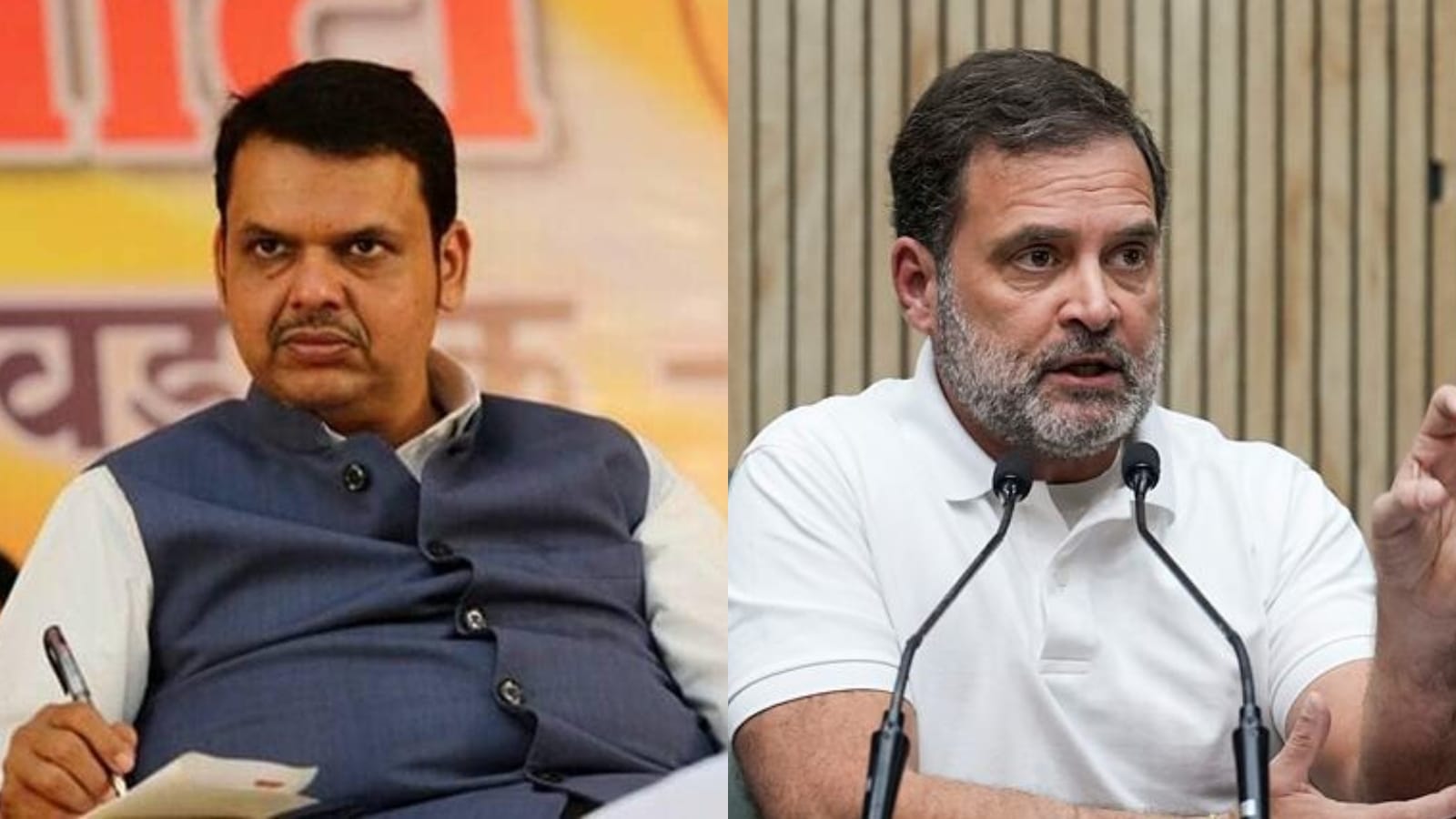 |
|
The recent statement by Maharashtra Chief Minister Devendra Fadnavis regarding Rahul Gandhi's allegations of voting irregularities in the state's Assembly elections highlights a significant political clash. Fadnavis's strong dismissal of Gandhi's claims, framing them as a diversionary tactic to mask the Congress party's anticipated poor performance in the upcoming Delhi Assembly elections, underscores the intense political climate preceding the results. The timing of Gandhi's allegations, just before the Delhi election results, is a key element in Fadnavis's critique. He suggests that the accusations are not driven by genuine concerns about electoral integrity but rather a desperate attempt to deflect attention from the Congress party's projected electoral losses. This interpretation casts Gandhi's actions in a negative light, suggesting a lack of genuine concern for democratic processes and a prioritization of political strategy over principle. The broader context of the Delhi elections is crucial here. The anticipated victory of the Aam Aadmi Party (AAP) and the potential marginalization of the Congress Party creates a high-stakes environment for both parties. This context significantly colors Fadnavis's interpretation of Gandhi's accusations, making them appear as a last-ditch effort to gain some political leverage in a situation where the Congress party is seemingly losing ground.
The specifics of Gandhi's allegations remain an important factor. The claim of voter turnout exceeding adult enrolment raises serious questions about the accuracy and integrity of the electoral process. While Fadnavis dismisses these concerns as a political maneuver, an independent investigation into the alleged discrepancies would be necessary to address the validity of Gandhi's claims and maintain public trust in the electoral system. The lack of such an investigation, regardless of Fadnavis's political stance, could undermine confidence in the fairness and transparency of the electoral process. The nature of the alleged discrepancies should be carefully examined, considering factors such as possible data entry errors, irregularities in voter registration, or other potential explanations that are independent of political motivations. This thorough examination should ideally be conducted by an independent body free from political influence to ensure objectivity and restore public trust.
The political implications of this exchange are far-reaching. The accusations and counter-accusations between Gandhi and Fadnavis reflect the intense rivalry between the Congress and BJP parties. This rivalry extends beyond Maharashtra and Delhi, representing a broader national political dynamic. The accusations also highlight the importance of maintaining free and fair elections as a cornerstone of a functioning democracy. Any perceived irregularities, even if politically motivated, undermine public confidence in the electoral system. The response to these accusations, both within the political sphere and through independent investigations, will shape perceptions of the integrity of the electoral process and influence the future political landscape of India. The lack of an independent investigation into Gandhi's claims could negatively impact the public's perception of both the BJP's governance and the electoral process itself, potentially leading to diminished public participation and decreased trust in democratic institutions. This underscores the need for transparency and accountability in addressing such allegations, regardless of the political context.
Furthermore, this incident underscores the power dynamics at play within Indian politics. The timing of Gandhi's statement, strategically placed just before the Delhi election results, suggests a calculated move to influence public opinion. Fadnavis's immediate and forceful rebuttal, in turn, reflects the BJP's proactive strategy to counter any potential negative impact. This exchange illustrates the way that political communication and accusations can be weaponized to shape public narratives and influence electoral outcomes. The ongoing political battle between the Congress and BJP, intensified by these events, highlights the importance of media scrutiny and critical analysis to separate factual claims from political maneuvering. A balanced and informed approach is essential for citizens to understand the events accurately and make well-informed judgments. The broader narrative should also consider the role of the media and its responsibility to impartially report on these accusations and the subsequent political maneuvering. Ultimately, this incident serves as a case study of the strategic use of political discourse and its impact on the perceptions of election integrity and the broader political landscape.
In conclusion, the clash between Rahul Gandhi and Devendra Fadnavis over alleged voting irregularities in Maharashtra's Assembly elections serves as a significant political event, highlighting a deeper struggle between the Congress and BJP parties. Fadnavis's dismissal of Gandhi's claims as a smokescreen to hide Congress’s failures in the Delhi elections, while strong, necessitates further scrutiny into the alleged discrepancies. An independent investigation is crucial to maintaining public confidence in electoral processes. This incident, though focused on a specific state, provides valuable insight into the broader political dynamics at play in India, and highlights the importance of transparency, accountability, and unbiased reporting in maintaining a strong and healthy democracy. The episode highlights the need for comprehensive electoral reforms and mechanisms to ensure accountability and prevent future accusations of similar nature, regardless of political motivation. The emphasis should be on strengthening the integrity of the electoral system, rather than on partisan political gains derived from such accusations.
